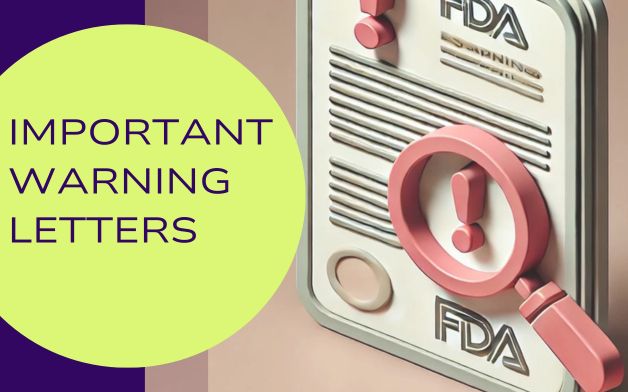FDA Cracks Down on Unreliable Lab Data:
What Device Firms Need to Know
Medical device manufacturers received a serious wake-up call this year: the FDA is rejecting study data from two Chinese labs after uncovering widespread data integrity violations and the message is clear – your company is responsible for the accuracy of every piece of data in your submission, even if it comes from a third party.
In September 2024, FDA issued warning letters to Mid-Link Testing Company Ltd. and the Sanitation & Environmental Technology Institute of Soochow University Ltd. (SDWH), citing critical failures in lab oversight, animal care, quality systems, and recordkeeping. These weren’t minor issues. Investigators found:
-
Cytotoxicity and sensitization studies with identical data sets from different test dates
-
Implausible weight gains and bleeding assessments in large animals
-
Missing adverse clinical observations
-
A complete lack of Quality Assurance Unit oversight
In follow-up letters through May 2025, FDA confirmed: some of the data was likely copied or fabricated. Until these issues are resolved, FDA will not accept any data from these facilities.
This isn’t an isolated incident. It reflects a broader pattern FDA has been tracking for years—data from third-party labs that can’t be trusted. And while this latest action focuses on labs in China and India, the problem is global.
What This Means for Device Firms
Even if you rely on third-party testing, you’re still accountable. FDA’s stance is firm: sponsors must verify the integrity of any data submitted in a 510(k), PMA, or other premarket application. That includes:
-
Evaluating testing partners before engaging them, not just relying on accreditation
-
Independently verifying data before submission
-
Flagging results that seem improbable or too consistent
-
Staying informed about known issues with labs you use
Programs like FDA’s ASCA can help, but they’re not a substitute for due diligence.
Supplier Management is a Compliance Imperative
Robust supplier qualification and monitoring processes aren’t just good quality practice—they’re now essential to regulatory success. If your lab partners fall short, your device may not reach market—or worse, may be pulled post-market.
Key actions your team should consider:
-
Expand supplier qualification beyond certifications to include data traceability, QA systems, and inspection history
-
Review test data for anomalies or patterns that could suggest fabrication
-
Incorporate raw data review or third-party audit as part of your submission process
If your team needs help strengthening supplier oversight or evaluating your current lab partners, our team at Qualomics can help. We assist medical device companies in developing risk-based supplier management systems that hold up under FDA scrutiny.
Bottom line: The FDA is sending a clear message; data integrity is non-negotiable. It’s time to take a fresh look at how your team qualifies, monitors, and verifies third-party testing partners.
Primary Source:
References:
- Mid-Link Testing Company, Ltd – 687111 – 09/10/2024 | FDA
- Sanitation & Environmental Technology Institute dba SDWH – 687970 – 09/10/2024 | FDA
- Fraudulent and Unreliable Laboratory Testing Data in Premarket Submissions: FDA Reminds Medical Device Manufacturers to Scrutinize Third-Party-Generated Data | FDA
- Accreditation Scheme for Conformity Assessment (ASCA) | FDA

